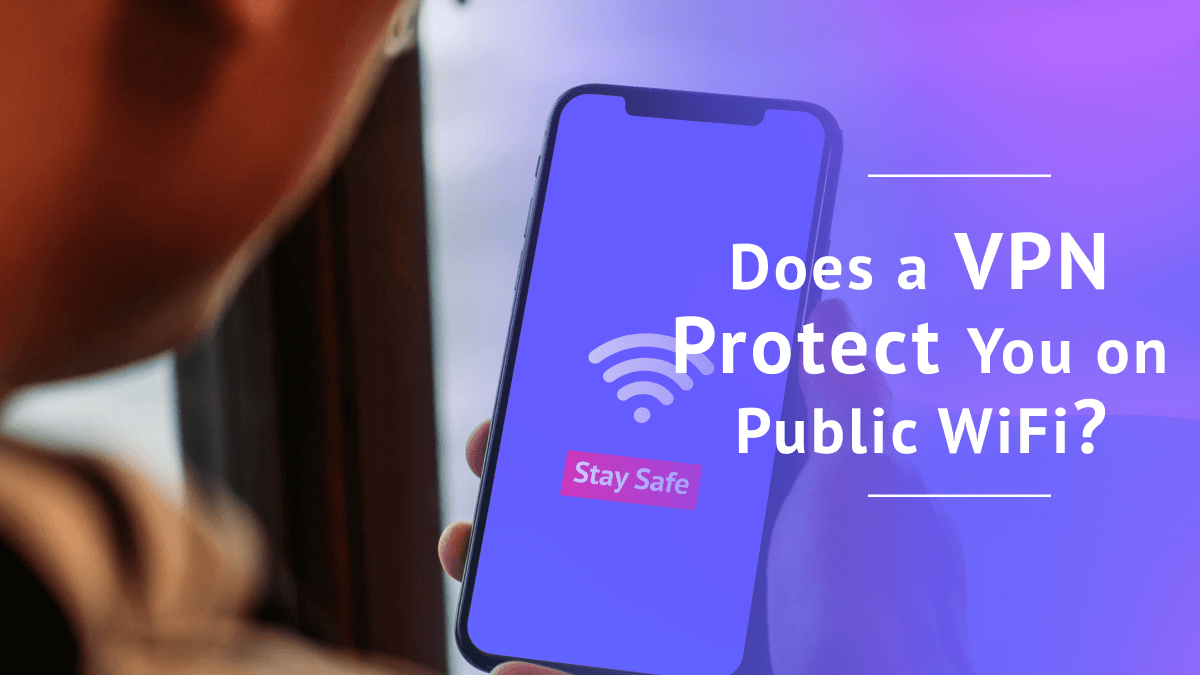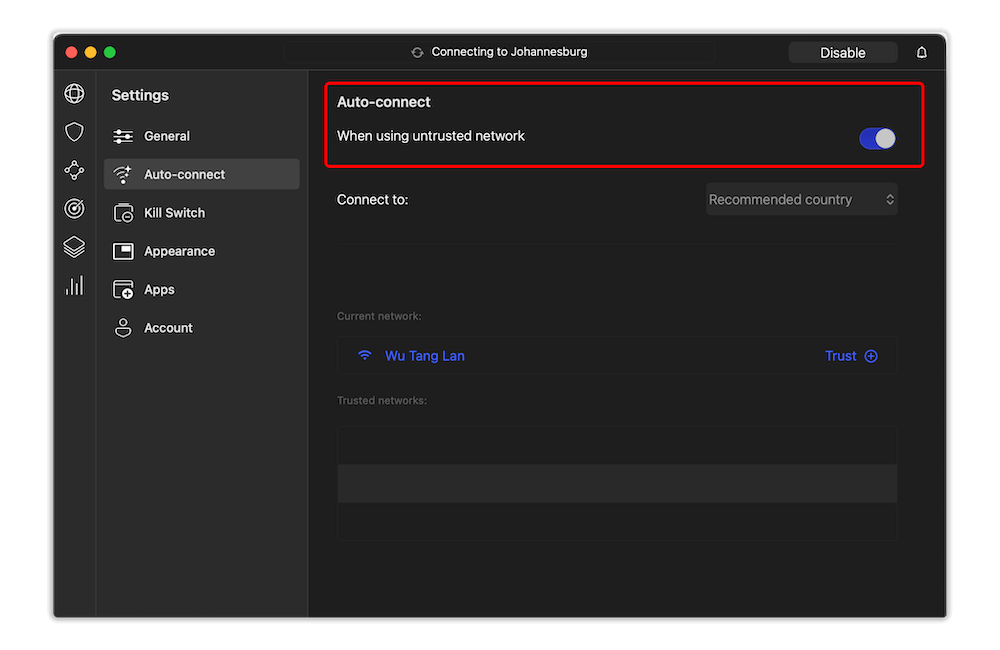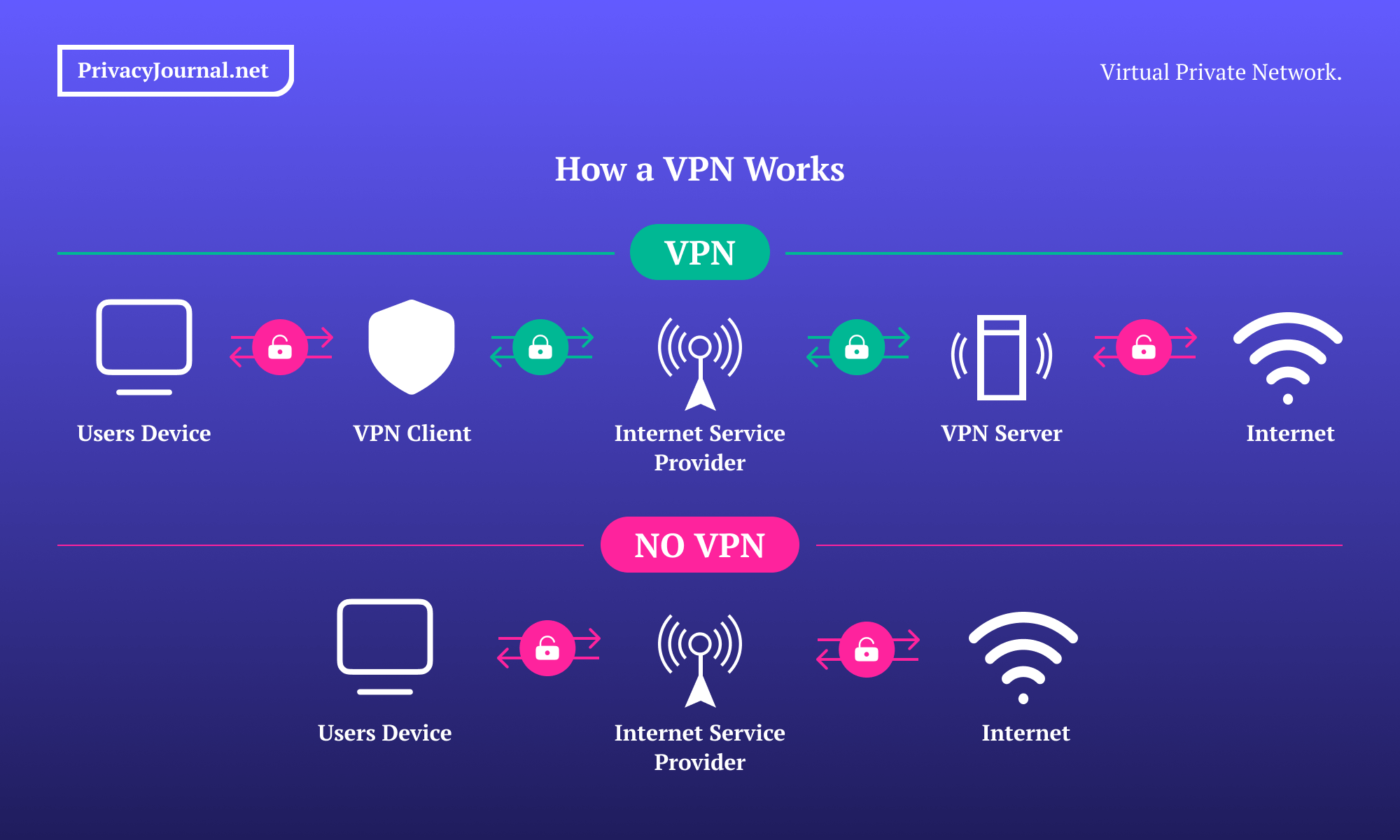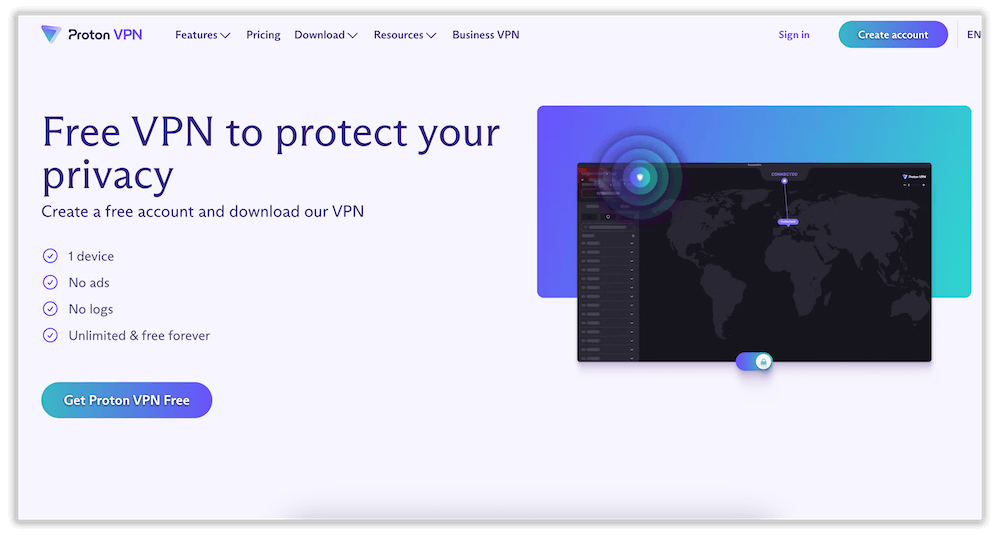
Does a VPN Protect You on Public WiFi? Is My Internet Traffic Secure in 2025?
- Table of Contents
- Does a Virtual Private Network Protect You on Public WiFi?
- Confidentiality: How Does a VPN Protect You on Public WiFi?
- The Biggest Public WiFi Threats & How a VPN Can Protect You
- What Does a VPN Not Protect You From on Public WiFi?
- How to Choose the Best VPN for Public WiFi
- Using a Free VPN: Public WiFi
- Staying Secure on Public WiFi: Top Tips
- Conclusion
- FAQ: VPN Service for Public WiFi Connections
Quick Summary: Does a VPN Protect You on Public WiFi?
A VPN protects you on public WiFi by encrypting your online traffic. This makes it so that no one can intercept it and access your data, which they can use to steal from or harm you. Be cautious with free VPNs, though, as many are as dangerous as public WiFi.
Does a VPN protect you on public WiFi? The short answer is yes. When you connect to a server on one of our best VPN picks, your online traffic is routed through an encrypted tunnel, making it impossible for anyone to see where you’re connecting from or what sites you’re opening. This encryption keeps you safe on unsecured public hotspots that may be infested with hackers.
Public WiFi routers keep a log of your browsing data. Not only can the router’s owner and internet service provider (ISP) easily see your internet activity, but it’s vulnerable to hackers too. Out of all the security tools you can use to stay safe on public WiFi (and many other places), VPN services are the most reliable and cost-effective.
Before you get too excited about getting free WiFi, read this guide to discover what you may be getting into — and learn how to protect yourself.
Does a Virtual Private Network Protect You on Public WiFi?
When you use public WiFi, hackers could access your browsing data. A virtual private network (VPN) protects you from this risk by redirecting your internet connection through a private internet server. In doing so, your real IP address is hidden, and everything you do online through the public network is obscured.
Some notable threats that are subverted when you use a VPN on public WiFi include man-in-the-middle attacks, evil twin attacks, malware injection and WiFi sniffing (more on these later).

Can Public WiFi Networks See My Online Activity?
Yes, the network administrator of the WiFi you’re using can see most of your online activities, the websites you visit and the exact timestamps. Some will even sell this data to advertising and analytics companies, which then use it to target you with specific ads.
Is a VPN WiFi?
No, a VPN is not WiFi. A VPN connects your device to a VPN server using an encryption protocol, allowing you to go online securely and anonymously. WiFi is the networking technology that allows your devices to interface with the internet in the first place — without WiFi, a VPN has nothing to do.
Is It Safe to Use a VPN on Public WiFi Networks?
VPNs are safe on public WiFi networks and everywhere else. Always use a VPN when connecting to public networks, especially if you habitually open banking apps, healthcare apps or other sites that deal with sensitive information.
Does a VPN Protect Me on Hotel WiFi?
A VPN protects you on hotel WiFi by encrypting your online traffic when you connect to the internet. That stops malicious parties from snooping on your browsing activities and compromising your security and privacy.
Confidentiality: How Does a VPN Protect You on Public WiFi?
A VPN hides your IP address through encryption. An IP address is your online identifier, and in the wrong hands, it can be used to get your exact location — among other sensitive information.
While no encryption standard is completely secure, cracking AES-256 with methods like brute-force attacks is virtually impossible. Therefore, you should be fine when using public WiFi with a VPN.
The Biggest Public WiFi Threats & How a VPN Can Protect You
You now know that a VPN keeps you safe on public WiFi, but what exactly is it protecting you from? The following are some of the most common attacks that a VPN can prevent.

What Does a VPN Not Protect You From on Public WiFi?
A VPN isn’t a cure-all solution, and there are some risks it cannot protect you from. It takes a combination of tools and efforts to secure you on public networks.
We’ll list some things that a VPN can’t protect you from here:
- Weak passwords: When your password is something like 1234 plus your birth year, or a maiden name you broadcast on your social media, it won’t be long before your accounts are hacked, even if you use a VPN. Always use strong passwords unrelated to any event in your life.
- Outdated software: App updates aren’t for show; they are deliberate and important solutions to software weaknesses that may have been discovered before anyone could exploit them. Using outdated apps on public WiFi is a recipe for disaster that even a VPN can’t save you from, especially if the VPN itself is also obsolete.
- Social engineering: This is when a hacker manipulates you into sharing sensitive information in ways that look harmless. Social engineering usually involves posing as an authority figure or a trusted professional. Beware of any message that asks you to share sensitive information outside the site where you typically enter it.
- Harmful downloads: Deliberately downloading harmful files is the fastest way to introduce dangerous malware onto your device, and a VPN can’t do much to prevent that. While some VPNs come with anti-malware features, a reliable antivirus software is the best way of dealing with malware.
How to Choose the Best VPN for Public WiFi
Almost every VPN has standard features necessary for public WiFi protection, including encryption and servers that don’t leak. You need a VPN that goes beyond the basics.
Here are some key considerations:
- My Overall VPN Recommendation: Of all VPN providers, ExpressVPN is my favorite for public WiFi because it works so well you forget you’re even using a VPN — the ExpressVPN review explains more about this premium VPN.
WiFi Management Tools
Some VPNs have a feature that sets the VPN to launch and connect automatically whenever you access an unsecured WiFi network. This is helpful if you often forget to launch the VPN yourself.
- My VPN Recommendation: Our CyberGhost review explains how it has some of the best automation in the business.
Platform Compatibility
Sometimes, you must use your phone or laptop to access the internet using public WiFi in a cafe or restaurant. The ideal VPN should be compatible with all the devices you intend to use.
- My VPN Recommendation: As you’ll see in our NordVPN review, NordVPN is one of the most widely compatible VPN apps.
Ease of Use
Setting up a VPN for public WiFi hotspots shouldn’t require a Ph.D. in computer engineering. You should be able to launch the VPN and connect to any server without stress or worry.
- My VPN Recommendation: Our Proton VPN review describes one of the PJ team’s favorite user interfaces.
Affordability
Good VPNs aren’t free, but you shouldn’t be forced to sell your kidney to afford one. You need to find the sweet spot between affordability and functionality.
- My VPN Recommendation: Surfshark offers a full security suite for affordable prices, especially with the annual plans. See our Surfshark review for details.
- Best VPNs for Public WiFi
Using a Free VPN: Public WiFi
You can use a free VPN for your public WiFi connections, but I wouldn’t recommend it. Most free VPNs lack security features like dedicated WiFi management tools. Additionally, some free VPNs sell your data to third parties, which is almost as dangerous as having a hacker snoop on your online activities via public networks.

Some decent free VPNs can sufficiently protect you on public WiFi. For example, Proton VPN is the best free VPN for public WiFi. It gives you free access to five locations, unlimited bandwidth and reliable security to protect you from ransomware, MITM attacks or WiFi sniffing.
Staying Secure on Public WiFi: Top Tips
I’ve already mentioned that VPNs aren’t entirely foolproof when you need a secure connection on public WiFi. Here are some things you can do on your end to increase your chances of using unsecured networks without issues.
- Use a VPN: A VPN is the easiest and most cost-effective way to keep yourself secure on public WiFi. It also has the added advantage of letting you easily unblock geo-restricted content and bypass speed throttling.
- Ask first: To avoid falling prey to evil twin attacks, always ask the establishment you’re visiting for the right WiFi network from the list that pops up. This prevents you from hurriedly connecting to the wrong network and getting burned.
- Activate firewalls: Ensure your firewalls and antivirus software are activated before connecting to any public network. They are important for countering ransomware attacks and malware injections.
- Disable WiFi auto-connect: Some devices are set to connect to new networks by default, which can be risky. Turn off this feature so you can manually choose safe networks from the list. I know it’s cumbersome, but it beats the pain of exposing yourself to multiple threats.
- Avoid sensitive apps: Don’t open your banking apps on public networks. If you absolutely can’t avoid it, switch to your mobile network, which is significantly safer — mobile data networks are encrypted by default.
Conclusion
Using unsecured public WiFi isn’t safe. Having a VPN service on your device is your best shot at keeping your online sessions safe from MITM attacks, ransomware attacks or malware injections. However, it also takes more than just a VPN. You must scrutinize the networks you connect to and combine VPNs with other security tools like firewalls.
Have you ever been hacked while using public WiFi? Did using a VPN make things better? Share your experiences in the comments below, and we will happily answer any pressing questions. Keep reading our blog for more insightful takes on your online security.
FAQ: VPN Service for Public WiFi Connections
Should I Use a VPN When Using Public Wi-Fi Networks?
You should use a VPN when using public WiFi networks to encrypt your web traffic and avoid threats like evil twin attacks or password theft.Can the WiFi Owner See What Sites You Visit With a VPN?
WiFi owners can see the websites you visit with corresponding time stamps if you’re not using a VPN.Is It Safe to Use an Airport WiFi Network With a VPN?
It is safe to use an airport WiFi network with a VPN, as the VPN counters most potential cyber threats. However, you should still be careful if you download any files, and always have an antivirus program running alongside your VPN.What Doesn’t a VPN Protect You From on an Unsecured Wi-Fi Network?
A VPN doesn’t protect you from weak passwords, social engineering tactics or outdated apps.

Leave a Reply